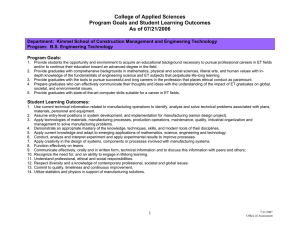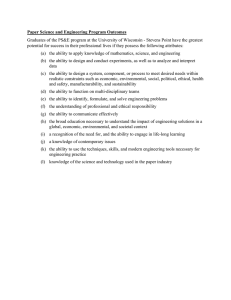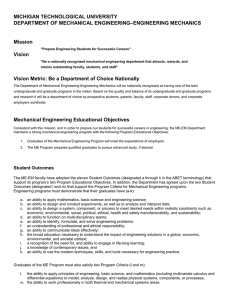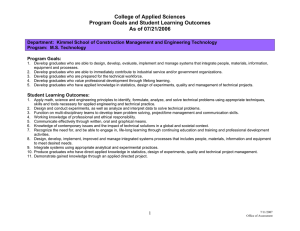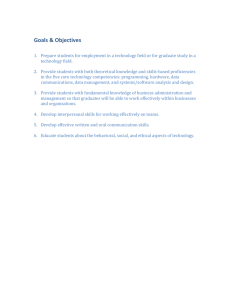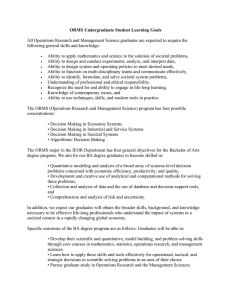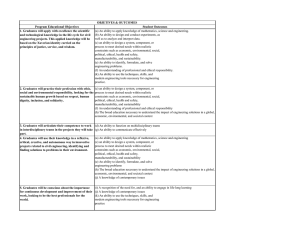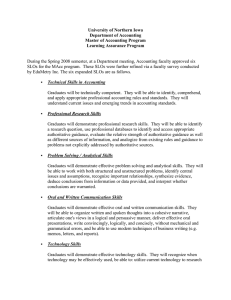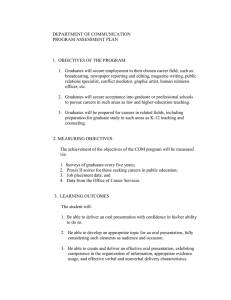College of Applied Sciences Program Goals and Student Learning Outcomes
advertisement
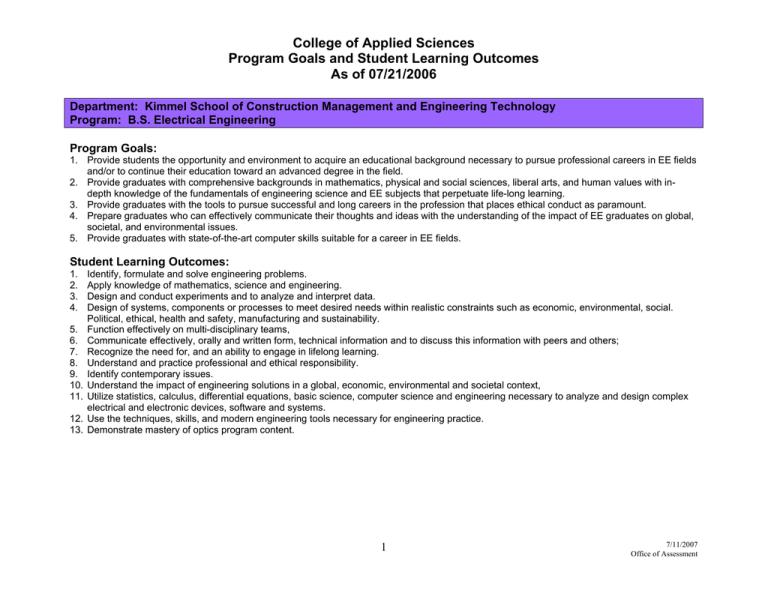
College of Applied Sciences Program Goals and Student Learning Outcomes As of 07/21/2006 Department: Kimmel School of Construction Management and Engineering Technology Program: B.S. Electrical Engineering Program Goals: 1. Provide students the opportunity and environment to acquire an educational background necessary to pursue professional careers in EE fields and/or to continue their education toward an advanced degree in the field. 2. Provide graduates with comprehensive backgrounds in mathematics, physical and social sciences, liberal arts, and human values with indepth knowledge of the fundamentals of engineering science and EE subjects that perpetuate life-long learning. 3. Provide graduates with the tools to pursue successful and long careers in the profession that places ethical conduct as paramount. 4. Prepare graduates who can effectively communicate their thoughts and ideas with the understanding of the impact of EE graduates on global, societal, and environmental issues. 5. Provide graduates with state-of-the-art computer skills suitable for a career in EE fields. Student Learning Outcomes: 1. 2. 3. 4. 5. 6. 7. 8. 9. 10. 11. 12. 13. Identify, formulate and solve engineering problems. Apply knowledge of mathematics, science and engineering. Design and conduct experiments and to analyze and interpret data. Design of systems, components or processes to meet desired needs within realistic constraints such as economic, environmental, social. Political, ethical, health and safety, manufacturing and sustainability. Function effectively on multi-disciplinary teams, Communicate effectively, orally and written form, technical information and to discuss this information with peers and others; Recognize the need for, and an ability to engage in lifelong learning. Understand and practice professional and ethical responsibility. Identify contemporary issues. Understand the impact of engineering solutions in a global, economic, environmental and societal context, Utilize statistics, calculus, differential equations, basic science, computer science and engineering necessary to analyze and design complex electrical and electronic devices, software and systems. Use the techniques, skills, and modern engineering tools necessary for engineering practice. Demonstrate mastery of optics program content. 1 7/11/2007 Office of Assessment
